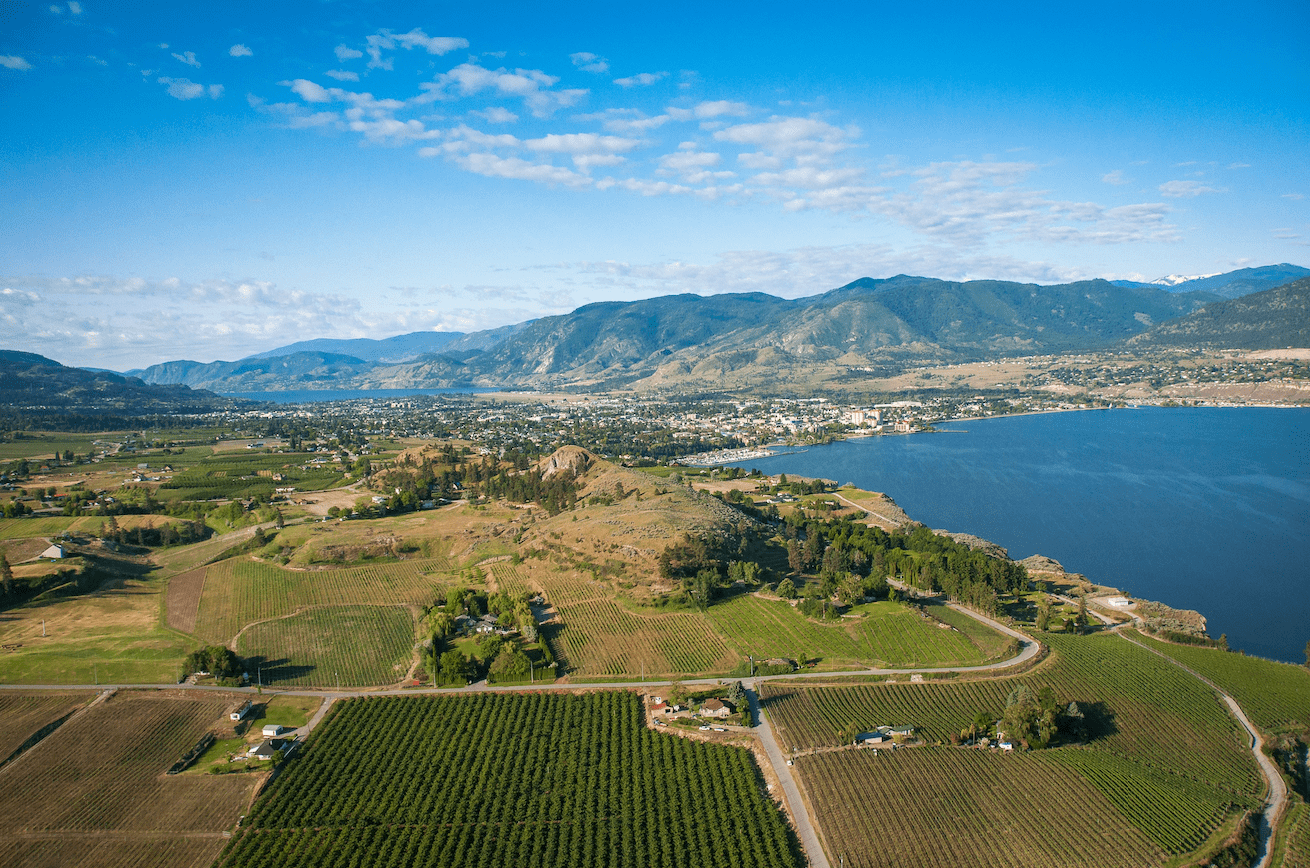
Jozsef Hamari of TerraSense Analytics and UBC Okanagan Professor Dr. Zheng Liu.
KELOWNA – A two-metre long, helicopter-style drone thunders over the Gulf of St. Lawrence, equipped with two powerful sensors that surveil the glistening surface below. As a pod of North Atlantic right whales swim just below the surface, the sensors instantly capture images of the majestic sight in precise detail.
Advances in artificial intelligence (AI) and machine learning mean the data is immediately transferred to on-shore computers and analyzed by operators. In this case, the information will be used to detect, classify and track the right whales, which are at risk of injury from shipping traffic in the Gulf and on the east coast of Canada.
It’s just one of the many ongoing projects at TerraSense Analytics, a Kelowna-based AI company specializing in surveillance and monitoring solutions using computer vision and deep learning technology. Co-founded by UBC alum Jozsef Hamari, the company originally focused its remote sensing technology in the forestry sector to count and classify trees.
“Working in forestry led us to reach out to UBC Okanagan and its STAR initiative, which connects private sector companies with university researchers and market opportunities,” explains Hamari, President and Chief Technology Officer at TerraSense.
“We were introduced to Dr. Zheng Liu, an expert in the AI and machine learning field. As we talked, I saw the value in his approach, and we both wanted to pair that with some of the deep learning and computer vision work we were doing independently. That’s when we decided to submit a joint proposal to the IDEaS program.”
Innovation for Defence Excellence and Security (IDEaS), a federally funded program through the Department of National Defence, provides funding to companies to develop technology that can be used in both the commercial sector and defence space. For Dr. Liu, the program was a perfect mix of his research interests and expertise.
“I became excited by the opportunity of working with industry to more quickly move existing technologies and my research further into the commercial space, where it can benefit society,” explains Dr. Liu, a Professor of Applied Science in Engineering. “Devising real-life, interdisciplinary solutions to everyday problems is my passion.”
That initial 2018 application has been an incredible catalyst for growth for Hamari’s team and Dr. Liu, who were successful through multiple project phases and were eventually awarded a $10 million contract. Since then, TerraSense has grown exponentially from just two employees working closely with UBC STAR in their campus lab space, to almost 30 employees now located in new company headquarters.
Over the years the team has also hired top talent from UBCO’s Master of Data Science program as well as co-op, Mitacs, internship and summer students—some of whom eventually became full-time employees.
“We’ve hired highly qualified professionals from UBC Okanagan, which has helped us in our journey from a small start-up to becoming the thriving company we are today,” Hamari says.
Dr. Liu and TerraSense have since applied to other opportunities through the IDEaS program, including one request to predict and optimize maintenance for military platforms.
“The military was interested in predicting faults in vehicles before they happened based on a variety of onboard sensors,” explains Hamari. “We sat down with Dr. Liu, who has previous experience in this realm; really, it’s his pillar of expertise.
“Together, we created a low-cost device that could be deployed in a military vehicle, but at the same time is very much a dual-use technology that can be employed elsewhere, like power lines.”
“We collaborated with professors, their labs and their graduate students, who were coming up with really innovative ideas in an area that’s already quite on the cutting-edge. We could do that because we were working with UBCO and the UBC STAR ecosystem here in the Okanagan.”
For Dr. Liu, the opportunity to work with industry partners like TerraSense translates to benefits beyond building his already impressive research portfolio.
“There’s more to university than learning how to conduct research, writing papers and getting your work published,” Dr. Liu adds. “I want my students to work with industry because these interactions are beneficial no matter where life leads you after graduation.”
In Hamari’s case, partnering with academia through UBC STAR enabled TerraSense to explore some of the upcoming AI-related technologies coming down the pipeline.
“It gave us the opportunity to collaborate with professors, their labs and their graduate students, who were coming up with really innovative ideas in an area that’s already quite on the cutting-edge.
“We could do that because we were working with UBCO and the UBC STAR ecosystem here in the Okanagan.”
Source: UBCO

